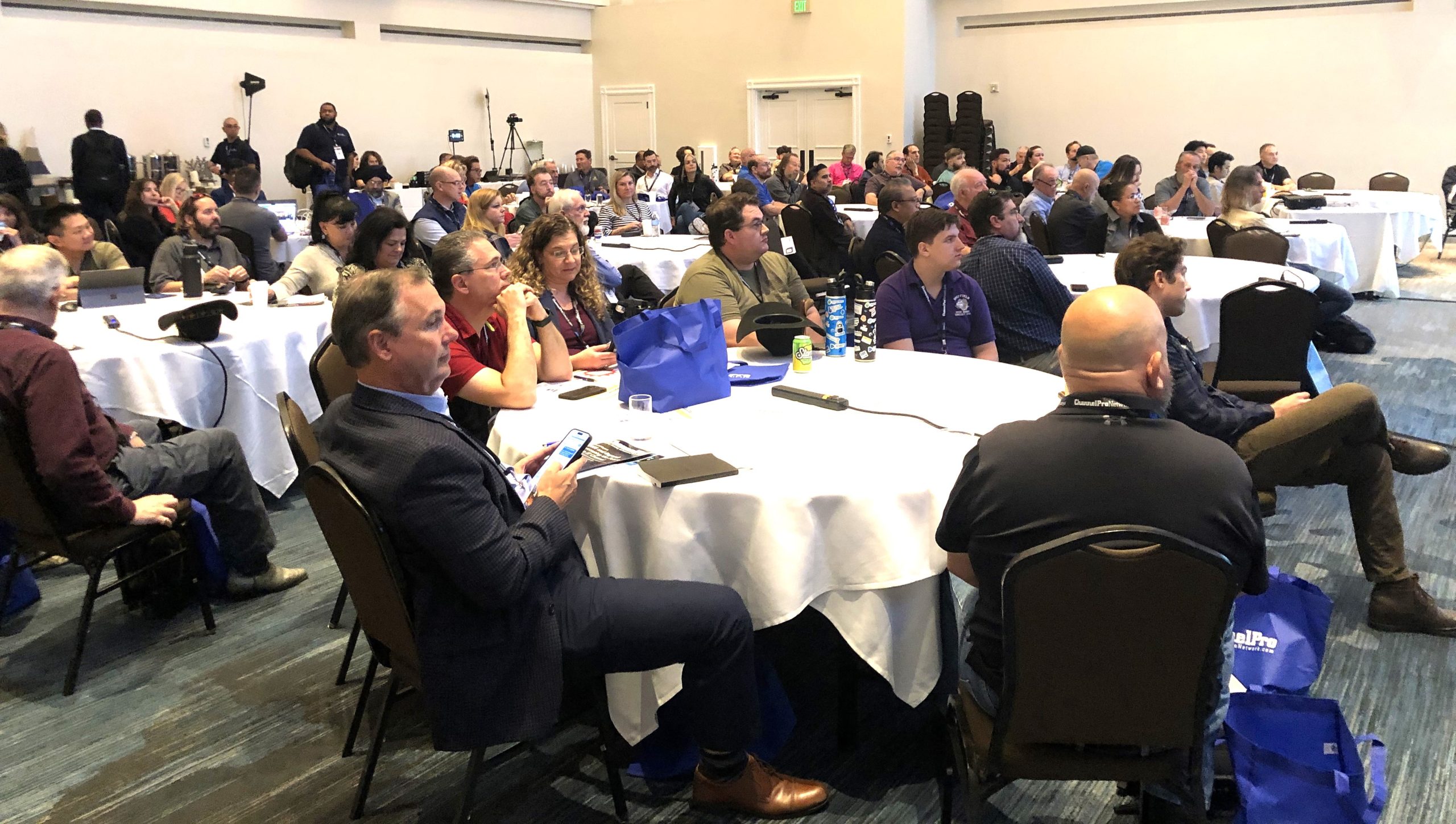Data privacy regulations are increasingly complex, and managed services providers operating in Florida need to stay vigilant to ensure both their businesses and their clients remain compliant. Because Florida-based businesses handle sensitive data, they must comply with state, federal, and industry-specific privacy laws to avoid hefty penalties, reputational damage, and legal risks.
This guide provides an overview of Florida’s relevant data privacy regulations, the risks of non-compliance, and how MSPs can educate their clients on the importance of adhering to these laws.
Note that regulations are constantly evolving and can be confusing. Always seek out the latest information from the regulating agencies to get the most accurate information. The following information is a first step to your complete education on this topic.
Florida-Specific Data Privacy Laws
Florida does not have a comprehensive statewide data privacy law like California’s CCPA, but businesses in the state are still subject to a number of privacy regulations. These laws impact how MSPs and their clients collect, store, and use data.
Florida Information Protection Act (FIPA)
- The Florida Information Protection Act (FIPA) mandates that businesses in Florida take appropriate measures to protect personal information and notify individuals of data breaches in a timely manner.
- Key Points of FIPA:
- Businesses must notify affected individuals within 30 days of a data breach.
- The law applies to businesses that handle “personal information,” which includes any information that can identify an individual (e.g., name, social security number, medical history).
- Non-compliance can result in civil penalties of up to $500,000 for businesses.
- How It Affects MSPs: MSPs need to ensure that their clients are encrypting sensitive data, have proper breach notification procedures in place, and are prepared to respond within the time frame. As service providers, MSPs could also be responsible if they do not adequately protect their clients’ data.
- More info: FIPA Full Text
Florida Social Security Number Protection Act
- The Florida Social Security Number Protection Act prohibits businesses from collecting or disclosing an individual’s social security number unless it’s for legitimate business purposes.
- Key Points:
- Social security numbers cannot be publicly posted or shared unless explicitly required by law.
- Businesses must take reasonable measures to ensure SSNs are protected and not disclosed without consent.
- How It Affects MSPs: MSPs need to advise clients on how to securely store and handle social security numbers, ensuring they are encrypted or stored in highly secure environments.
- More info: SSN Protection Act
Federal and Industry Standards with Florida Impact
The Health Insurance Portability and Accountability Act (HIPAA)
- HIPAA is a federal law, but it has significant implications for healthcare providers in Florida and MSPs serving healthcare clients. HIPAA governs the privacy and security of patient health information.
- Key Points of HIPAA:
- Requires organizations that handle Protected Health Information (PHI) to implement strong privacy and security controls.
- MSPs working with healthcare providers are considered business associates under HIPAA, and must sign a Business Associate Agreement (BAA) ensuring compliance with HIPAA requirements.
- Failure to comply with HIPAA can result in severe penalties ranging from $100 to $50,000 per violation, with a maximum annual penalty of $1.5 million.
- How It Affects MSPs: Any MSP managing or accessing PHI (e.g., providing IT support to healthcare clients) must ensure they have the necessary security measures in place, such as encryption, access controls, and incident response plans. They must also conduct regular risk assessments and audits to ensure compliance.
- More info: HIPAA Privacy and Security Rules
Payment Card Industry Data Security Standard (PCI DSS)
- PCI DSS is a set of security standards designed to protect credit card information. While it is not a state or federal law, businesses that accept or process credit card payments must comply with PCI DSS.
- Key Points of PCI DSS:
- Requires encryption of cardholder data, strict access controls, and regular security testing.
- Non-compliance can result in fines ranging from $5,000 to $100,000 per month depending on the size of the business and the severity of non-compliance.
- How It Affects MSPs: MSPs working with retail or e-commerce clients need to ensure their clients’ payment systems meet PCI DSS requirements. This includes secure data storage, encryption, and secure remote access.
- More info: PCI DSS Standards
See more resources for Florida MSPs here >>>
The Risks of Non-Compliance for MSPs and Their Clients
For MSPs:
- Financial Penalties: Non-compliance with privacy laws like FIPA, HIPAA, or PCI DSS can lead to substantial fines, potentially crippling an MSP’s business.
- Loss of Business: Clients expect MSPs to protect their data and ensure compliance. Failing to meet these expectations can result in loss of trust, customer churn, and damage to the MSP’s reputation.
- Legal Liabilities: As service providers, MSPs can be held legally accountable if a client suffers from a data breach due to improper security practices. This could lead to lawsuits or government action against the MSP.
For Clients:
- Data Breach Consequences: If a business suffers a data breach due to non-compliance, they may face costly lawsuits, loss of customer trust, and regulatory penalties.
- Operational Disruption: Non-compliance can result in forced shutdowns or restrictions, leading to business downtime.
- Brand Damage: A data breach or regulatory fine can cause long-lasting reputational damage, particularly for businesses in industries like healthcare or finance.
Educating Clients on Data Privacy Compliance
How MSPs Can Communicate the Importance of Compliance:
- Use Business Terms: Instead of focusing on technical jargon, explain compliance in terms of risk management, financial impact, and customer trust. Highlight how non-compliance can lead to costly fines, legal trouble, and lost business.
- Create Simple Compliance Checklists: Provide clients with straightforward compliance checklists tailored to their industry. Break down complex regulations into actionable steps, such as encrypting data, securing user access, and implementing backup procedures.
- Offer Regular Audits and Updates: Propose regular audits and compliance assessments to ensure their systems remain secure and compliant as regulations change. Offer this as a premium service.
Example Talking Points for Clients:
- On the Cost of Non-Compliance:
A single data breach can cost your business thousands of dollars in fines, not to mention the potential loss of trust from your customers. By ensuring we’re compliant with Florida’s data privacy laws, we’re protecting not just your business, but also your reputation. - On the Importance of Data Encryption:
Encrypting your data ensures that, even in the event of a breach, sensitive information like credit card details or social security numbers can’t be accessed by unauthorized users. This is a simple yet effective way to avoid costly fines and safeguard your customer’s information.
Compliance Resources and Support from State and Local Agencies
Florida businesses can take advantage of several state and local resources to help them stay compliant with data privacy regulations. MSPs can guide clients toward these resources to improve their understanding and preparation for compliance.
Department of State – Division of Corporations
- The Division of Corporations provides information and resources related to business regulations in Florida, including certain aspects of data privacy and corporate governance.
- More info: Florida Division of Corporations
Small Business Development Center (SBDC)
- The Florida SBDC offers workshops and resources for businesses, including advice on legal compliance, cybersecurity, and business continuity. MSPs can direct small businesses to SBDC for additional compliance assistance and disaster recovery planning.
- More info: Florida SBDC
Office of the Attorney General
- The Attorney General’s website provides information on consumer protection and data privacy, including resources on identity theft prevention, fraud, and breach notification protocols.
- More info: Florida Attorney General’s Office
Federal Trade Commission (FTC)
- The FTC provides resources for businesses to help them comply with privacy regulations and prevent consumer harm. While it is a national resource, its information is crucial for Florida businesses.
- More info: FTC Business Center
ChannelPro has created this resource to help busy MSPs streamline their decision-making process. This resource offers a starting point for evaluating key business choices, saving time and providing clarity. While this resource is designed to guide you through important considerations, we encourage you to seek more references and professional advice to ensure fully informed decisions.
Images: iStock
















